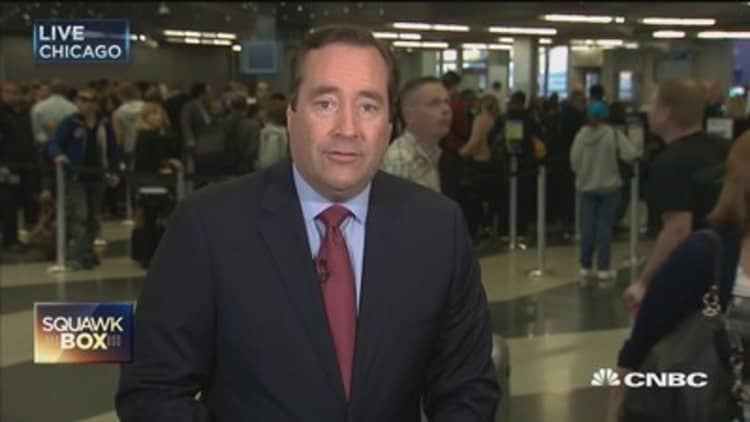
After a year when strong profits and growing traveler demand sent the overwhelming majority of travel-related stocks flying higher, the rental car industry finds itself looking for a jump start.
The category, dominated by the three big players Hertz, Avis and Enterprise, finds itself grappling with an inability to increase profitability from their oversize fleets, while improving their operations to meet the changing needs of travelers.
The disparity in returns between the two publicly traded rental car stocks, Hertz and Avis, and other travel-related stocks is eye opening.
Shares of the six major U.S. airlines are up an average 66 percent in the last year. Over the same time frame, cruise operator stocks have jumped an average 42 percent, online travel sites an average 40 percent, and hotels an average 28 percent. ( Tweet this. )
By comparison, Avis stock is up just 4 percent, while Hertz is down more than 25 percent in the last year. In addition, Hertz has delayed filing its 10K financial report to review its internal records for fiscal years 2011 through 2013.
Read MoreTest drive a Porsche at firm's new headquarters
The industry's struggles are happening despite consolidation in the sector, where the number of players has been cut in half over the past decade.
"We look at [the rental car industry] and say why can't this become more like airlines when you went from maybe eight hub airlines to four," said Brian Johnson, an analyst with Barclays who tracks the rental car industry. "We have gone from six rental car industry companies to three, yet we haven't seen the same type of benefits to investors from consolidation that we have with airlines."
There are three key issues holding back profits at these companies.
First, they simply have too many vehicles spending too many days on the lot. Depending on the company, the average vehicle is rented 21 or 22 days each month. That leaves more than a week each month when the car is parked and not generating revenue, Johnson said. It also makes it difficult for the firms to raise prices, as they're trying to get the vehicles off the lot.
Read MoreBuying a used Tesla just got easier
Second, rental car operators—like airlines and other travel-related businesses—get a big boost from ancillary revenues, which come in the form of additional services and fees for drivers. Those charges typically come from representatives at the counter, who persuade drivers to pay for extras including navigation systems and insurance. But increasingly, those renting vehicles want to get their car without having to stop at the counter by using services such as Hertz Gold, where they go straight to a waiting car.
"They want to sell you insurance, they want you to come out with a bigger car, they would like you to get some pre-paid gas which if you return it empty it is profitable," Johnson said.
Finally, the rental car industry finds itself playing catch-up in technology to improve its operations and the experience for travelers, including revamping outdated reservation systems. Although companies have been improving the process for renting a car, customer satisfaction has plateaued, said Rick Garlick, who runs J.D. Power's annual survey of consumer satisfaction.
"For many, dealing with rental car companies has become a case of 'Where's my car? Is it ready?' If it's not ready, then they are not happy," he said.
Read MoreAmerica's new favorite: Small SUVs and crossovers
There is some good news for rental car companies. For one, both Johnson and Garlick said they've improved the overall quality of vehicles in their fleets, after convincing automakers that it's beneficial to all parties if they offer the latest models. If someone rents a new Ford Focus and likes it, for example, they may be more likely to buy one down the road.
For another, ride-sharing firms such as Uber have had a limited impact on car rentals, as they're typically used for a quick visit to one or two locations relatively close to each other.
"Just looking at Avis, the average mileage put on a 24-hour rental is close to 200 miles," said Johnson. "So the rental cars are driven a lot and that's going to be a harder market for Uber to cost-effectively go after."
Questions? Comments? BehindTheWheel@cnbc.com.


